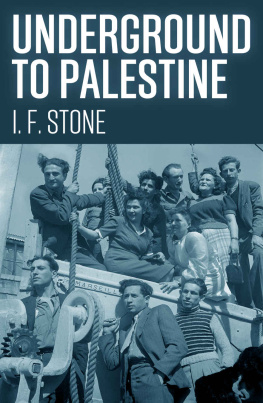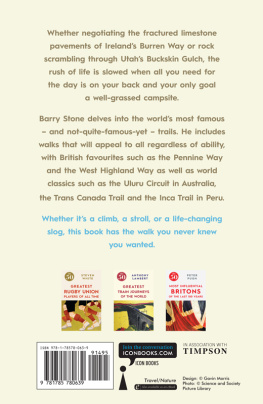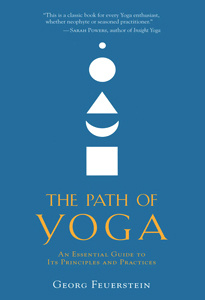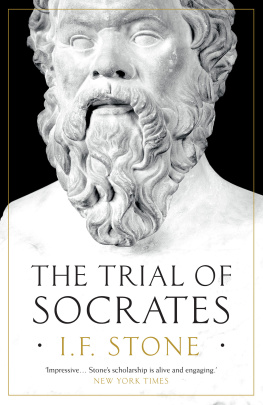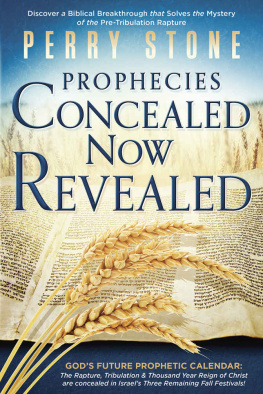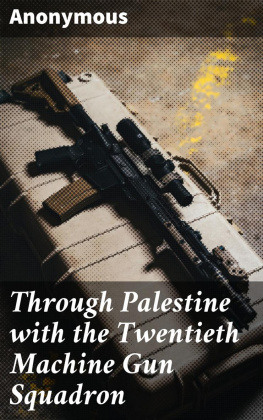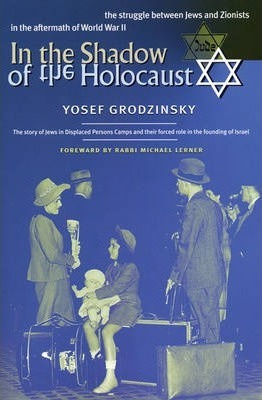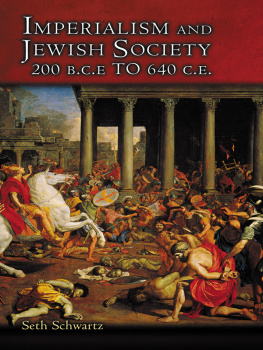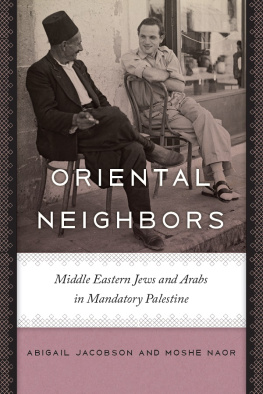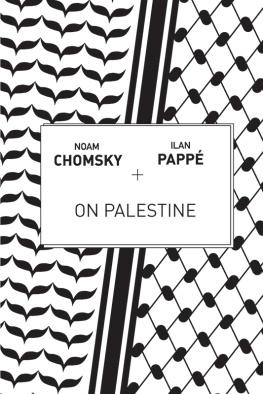UNDERGROUND TO PALESTINE
I. F. STONE
Cover and kindle version copyright 2014 by Uncommon Valor Press, Steve W. Chadde, Series Editor
Underground to Palestine was originally published in 1946 by Boni & Gaer, New York.
Uncommon Valor Series
Underground to Palestine is part of a series entitled Uncommon Valor, taken from the quote by Admiral Chester W. Nimitz, U.S. Navy: Uncommon valor was a common virtue, referring to the hard-won victory by U.S. Marines on Iwo Jima. The intent of the series is to keep alive a number of largely forgotten books, written by or about men and women who survived extreme hardship and deprivation during immensely trying historical times.
Each book in the series is meticulously reviewed to ensure a quality reading experience either on paper or on your kindle device.
To
Those Anonymous Heroes
The Schlichim of The Haganah
The Germans killed us. The British dont let us live. Jewish ex-Partisan.
Contents
In Explanation
This is a story of personal adventure. I was the first newspaperman to travel the Jewish underground in Europe and to arrive in Palestine on a so-called illegal boat. But this is more than the narrative of a journalistic escapade. I am an American and I am also and inescapably the world being what it is a Jew. I was born in the United States. My parents were born in Russia. Had they not emigrated at the turn of the century to America, I might have gone to the gas chambers in Eastern Europe. I might have been a DP, ragged and homeless like those with whom I traveled. I did not go to join them as a tourist in search of the picturesque, nor even as a newspaperman merely in search of a good story, but as a kinsman, fulfilling a moral obligation to my brothers. I wanted in my own way, as a journalist, to provide a picture of their trials and their aspirations in the hope that good people, Jewish and non-Jewish, might be moved to help them.
I have not faked and I have not fictionalized except to hide the names of persons and places. I have not glossed over the unpleasant. My comrades of the voyage would be dishonored by anything less than the truth. I hope that, however inadequately, I may also have provided a record of some value to history. The clandestine exodus of the Jews from postwar Europe is the greatest in the history of a wandering people greater than the exodus from Egypt or from Spain because their sufferings under Hitler were greater than any ouf ancestors ever underwent before. We know comparatively little of the emigration from Egypt or of what went on aboard those tragic ships out of Spain which Columbus may have passed in 1492 on his way to a new world. This narrative may fill a humble gap in the annals of the current emigration. It was a privilege to take part in that emigration. I only wish I had the power to portray what I saw against the background of the world situation today. The plight of the Jews may be a minor affair. But world indifference to that plight is of spiritual significance for the future of us all, I can only record as a reporter what I saw and heard, traveling with the least fortunate but the bravest of my people.
Summons to Adventure
I
I was in the press gallery at Hunter College in the Bronx when the call came. It was April, 1946. The Security Council of the United Nations was in session. The floodlighted scene below me seemed unreal, like the setting for a play perhaps a play about the fumbling of the peace. Sir Alexander Cadogan, Britains representative at that horseshoe-shaped council table a small man, dapper and correct was making a professionally astringent argument designed to prevent action against Franco. An usher tapped me on the shoulder and said I was wanted on the phone.
The interruption was not so irrelevant as it seemed at first. In Sir Alexanders subtle apologetics for a Fascist dictator, I had seen one aspect of the Empires postwar policy. I was soon to see another. When I picked up the phone in one of the booths in the big press room in the basement, I heard the voice of an American I had met the preceding November in Palestine.
How would you like to meet some boys who volunteered to serve as seamen for the illegal immigration? he asked me. Neither of us realized on what a journey that question was to send me.
Of course I was interested. I had reason to believe that the man who phoned me was in close touch with the leaders of the Haganah, the Jewish peoples militia of Palestine. I had heard many stories of its exploits during the war, when the Haganah directed underground rescue work in Hitler Europe. In April, 1946, a year after the liberation, the Haganah was back at much the same job, though under altered circumstances. The cruelty of the Nazis had given way to the indifference of the victors; the concentration camps had become DP camps. The Jews in them were still homeless.
Earl Harrison of Philadelphia had returned eight months before from a special tour of these camps to report at the White House, We seem to be treating the Jews as the Nazis treated them, except that we do not exterminate them. President Truman had asked the British government to open the doors of Palestine to the 100,000 Jews in the displaced persons camps of Germany and Austria before winter came, but the only result was an Anglo-American Committee of Inquiry. It was spring and the committee had yet to make its report A trickle of 1500 a month was entering Palestine legally under the limited immigration quota granted by the British, but the one hope of the rest was still the Aliyah Beth.
Aliyah is a Hebrew word which may be translated as immigration, though its connotations are richer. Literally, the word means an up-going, as to a high place; its associations are those of the pilgrimage. Beth in this context means second, and distinguishes this immigration from the one allowed by the British. Aliyah Beth is the Palestinian term for what the British call the illegal immigration; the difference goes deeper than terminology.
This is a subject on which the British do not see eye to eye with the Jews. The Colonial Office looks back to the White Paper of 1939. Under its terms the doors of Palestine should be shut tight against further Jewish immigration. But to the Jews Palestine is still as in the Bible Eretz Israel, the land of Israel. To them the British are another of those historic vexations like the Assyrians and the Romans. From the Jewish point of view the White Paper is a violation of the Balfour Declaration; the whole affair the 1917 promise and the 1939 breaking of it a bit of latter-day presumption. For is it not written, of an older covenant with Abraham, And He said unto him, I am the Lord that brought thee out of Ur of the Chaldees, to give thee this land to inherit it . Unto thy seed have I given this land?
This may, indeed, be theological nonsense and stubborn Jewish foolishness. Mr. Bevin and the gentlemen of the Foreign Office and the Colonial Office may be right in dismissing it as such. But the Jews have been that way for a long time; they were that way long before there was a Britain; unconsciously they feel that way today.
I set all this down at the beginning of my story so that the reader will understand that when my American friend referred to the illegal immigration he did so only as a matter of convenience and that when he warned that the visit he suggested must be kept highly confidential, it was not as though he spoke of something shameful or furtive.
I said, Call me back in fifteen minutes. I phoned my managing editor.

